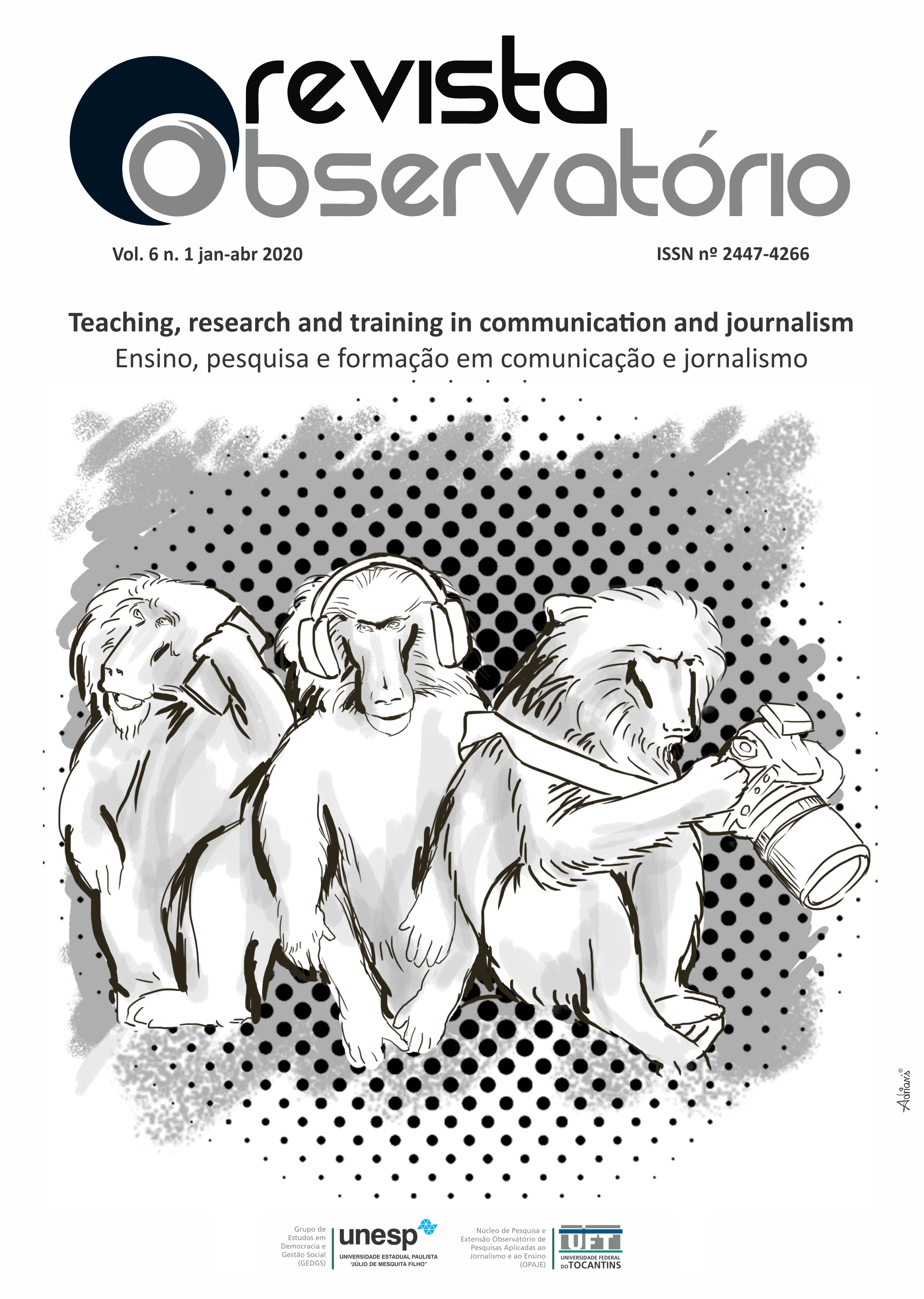O homem elogiável: uma experiência antropológica de autoemagrecimento a partir do jornalismo de TV sobre saúde
DOI:
https://doi.org/10.20873/uft.2447-4266.2020v6n1a9ptPalavras-chave:
Alimentação, Corpo, Televisão, BiopoderResumo
Este artigo apresenta resultados de pesquisa sobre alimentação, tema em voga no jornalismo de TV no Brasil. O autor deste trabalho seguiu dicas do programa Bem Estar, da Rede Globo, e emagreceu 25 kg em quatro meses. Durante o emagrecimento, anotou sensações que teve e reações dos outros. Este trabalho considera que, ao ensinar os segredos da alimentação, a TV propaga a ideia de corpo magro como modelo a seguir. O trabalho usa participação observante, técnica etnográfica na qual o pesquisador não só observa o fenômeno como também participa dele (no caso, mudanças no próprio corpo). O manuscrito usa técnica interdisciplinar para associar temas da Antropologia à Comunicação Social. Conclui que a mensagem televisiva em favor da magreza transforma aquele que emagrece em homem elogiável.
Downloads
Referências
CARNEIRO, Henrique. Comida e sociedade: uma história da alimentação. Rio de Janeiro: Elsevier, 2003.
DEFLEUR, Melvin. BALL-ROKEACH, Sandra. Teorias da Comunicação de massa; tradução de Otávio Alves Velho. Rio de Janeiro: Jorge Zahar Editor, 1993.
FAVRET-SAADA, Jeanne. Os afetos. In: Cadernos de campo, nº 13, UFRJ, 2005.
FISCHLER, Claude. El (h) omnívoro: el gusto, la cocina y el cuerpo; tradução de Mario Merlino. Barcelona: Anagrama, 1995.
FOUCAULT, Michel. História da sexualidade I: a vontade de saber; tradução de Maria Thereza da Costa e J. A. Guilhon Albuquerque. 22. ed. Rio de Janeiro: Graal, 2012.
ORNELLAS, Lieselotte Hoeschl. A alimentação através dos tempos. Florianópolis: Editora da UFSC, 2000.
POMBO, Olga. Epistemologia da Interdisciplinaridade. Conferencia proferida no Colóquio Interdisciplinaridade, Humanismo e Universidade, promovida pela Cátedra Humanismo Latino, Porto, 2007.
Publicado
Como Citar
Edição
Seção
Licença
[PT] Autores que publicam nesta revista concordam com os seguintes termos:
1. Autores mantém os direitos autorais e concedem à revista, sem pagamento, o direito de primeira publicação, com o trabalho simultaneamente licenciado sob a Creative Commons Attribution License (CC BY-NC 4.0), permitindo o compartilhamento do trabalho com reconhecimento da autoria do trabalho e publicação inicial nesta revista.
Leia todos os termos dos direitos autorais aqui.


